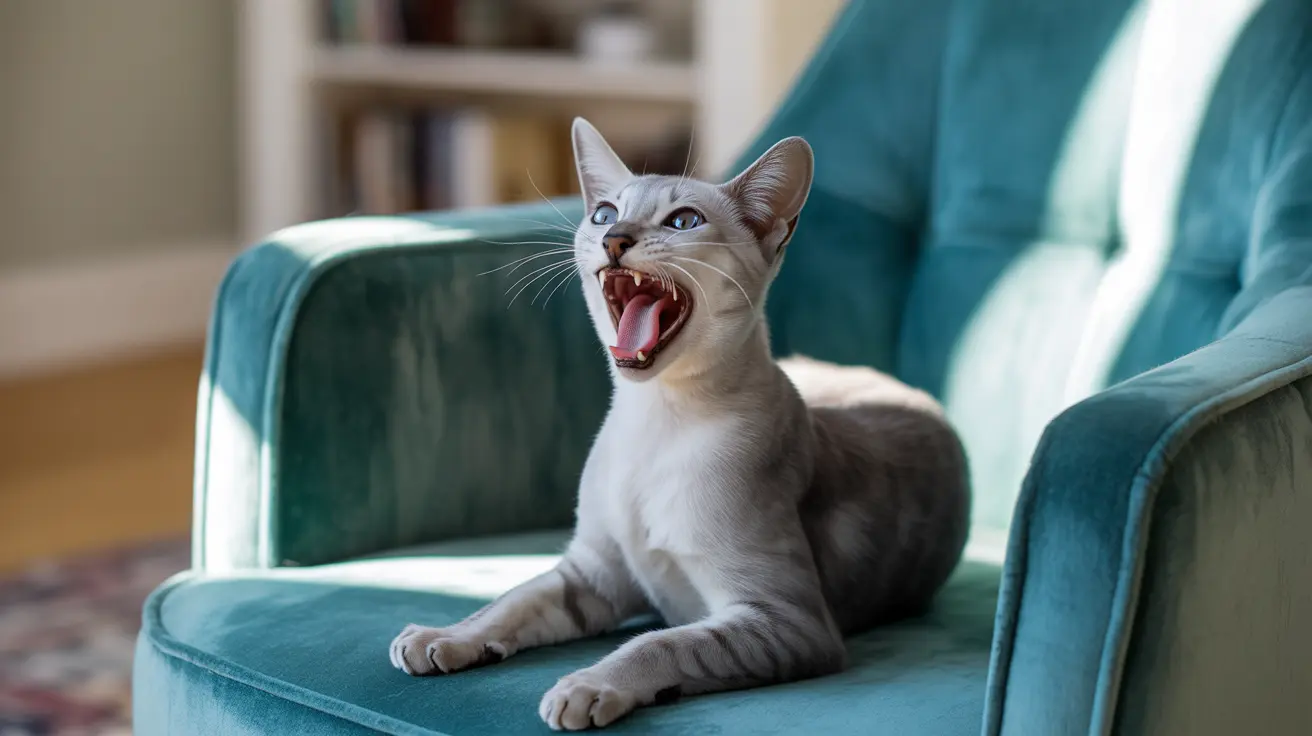What Makes Cats Scream? Understanding the Basics
Cat screaming, also known as caterwauling, is characterized by a loud, intense vocalization that's markedly different from normal cat sounds. This distinct cry can indicate various situations, from territorial disputes to medical emergencies.
These vocalizations typically sound like a drawn-out yowl that can reach up to 80 decibels – as loud as a kitchen blender. Understanding the context and accompanying body language is crucial for interpreting your cat's screams correctly.
Common Causes of Cat Screaming
Pain and Medical Issues
Sudden screaming often indicates acute pain or discomfort. Common medical causes include:
- Urinary tract infections
- Arthritis flare-ups
- Injury or trauma
- Digestive problems
- Thyroid conditions
Mating Behavior
Unspayed females and unneutered males frequently scream during mating season. Female cats in heat may vocalize loudly to attract mates, while males respond with similar calls. This behavior is particularly common in outdoor cats and can occur in cycles.
Fear and Stress Response
Cats may scream when experiencing intense fear or stress from:
- Encounters with unfamiliar animals
- Loud noises or sudden changes
- Being trapped or startled
- Environmental changes
Senior Cats and Night Screaming
Older cats may scream more frequently, especially at night, due to:
- Cognitive dysfunction syndrome (feline dementia)
- Disorientation
- Vision problems
- Joint pain
- Anxiety
When to Seek Veterinary Care
Immediate veterinary attention is necessary if your cat's screaming is accompanied by:
- Changes in eating or drinking habits
- Difficulty using the litter box
- Visible injuries or limping
- Lethargy or unusual behavior
- Repeated episodes without clear cause
Prevention and Management Strategies
Environmental Modifications
Create a comfortable environment by:
- Providing multiple hiding spots
- Maintaining consistent routines
- Using calming pheromone products
- Ensuring easy access to resources
Medical Interventions
Work with your veterinarian to:
- Address underlying health issues
- Consider pain management options
- Discuss behavioral medications if needed
- Plan regular health screenings
Frequently Asked Questions
Why is my cat screaming suddenly and how can I tell if it's due to pain?
Sudden screaming accompanied by hiding, limping, or changes in normal behavior typically indicates pain. Look for other signs like reduced appetite, lethargy, or sensitivity to touch. Contact your veterinarian immediately if you suspect pain-related screaming.
What are the common medical conditions that cause cats to scream or caterwaul?
Common medical conditions include urinary tract infections, hyperthyroidism, arthritis, dental disease, and high blood pressure. Senior cats may also scream due to cognitive dysfunction or sensory decline.
How can I distinguish between screaming caused by mating behavior and screaming from fear or distress?
Mating-related screaming is typically rhythmic and occurs in cycles, especially in unspayed females. Fear-based screaming is usually accompanied by defensive postures, dilated pupils, and attempts to hide or escape.
What should I do if my senior cat screams frequently, especially at night?
First, schedule a veterinary examination to rule out medical issues. Consider night lights to help with vision, maintain consistent routines, and discuss possible cognitive supplements or medications with your vet.
How can spaying or neutering reduce my cat's loud screaming and territorial vocalizations?
Spaying or neutering eliminates hormonal-driven vocalizations related to mating behavior and typically reduces territorial aggression. This surgical intervention can significantly decrease screaming episodes in both male and female cats.






